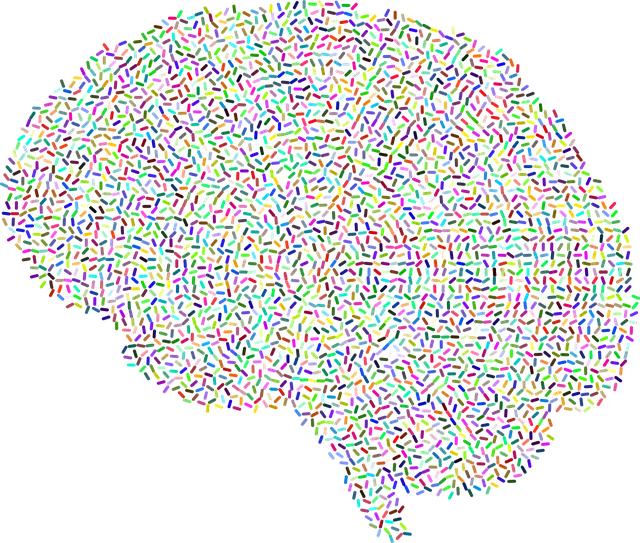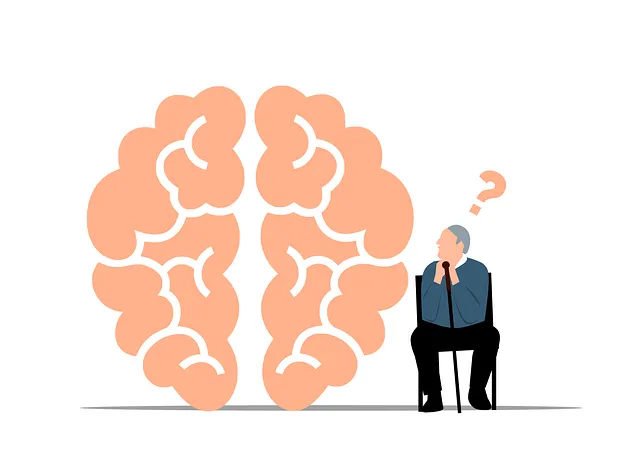Mental illness stigma, fueled by misinformation and fear, hinders individuals from seeking help. Organizations like Kaiser in Highlands Ranch combat this through comprehensive therapist training, accessible therapy, workshops, and peer support groups. Their initiatives foster mental health literacy, reduce discrimination, and promote compassionate care. Measuring success through surveys, participation rates, and improved outcomes ensures these programs effectively break down stigma barriers, encouraging more people to access quality therapists in the area.
Mental illness stigma remains a significant barrier to treatment, affecting millions worldwide. This article explores comprehensive stigma reduction efforts, focusing on strategies employed by Kaiser in Highlands Ranch and their impact. We delve into the causes and consequences of mental health stigma, highlighting innovative approaches like therapist training, community engagement, peer support groups, and measurement techniques. Understanding these initiatives is crucial in determining if organizations like Kaiser have good therapists and ultimately improving access to care.
- Understanding Mental Illness Stigma: Causes and Impact
- Kaiser's Approach to Therapist Training and Support in Highlands Ranch
- Community Engagement: Breaking Down Barriers through Education
- Peer Support Groups: Empowering Individuals with Shared Experiences
- Measuring Success: Evaluating the Effectiveness of Stigma Reduction Efforts
Understanding Mental Illness Stigma: Causes and Impact

Mental illness stigma is a complex issue deeply rooted in societal perceptions and historical contexts. It arises from various factors, including misinformation, fear of the unknown, and the marginalization of individuals with mental health challenges. In many communities, mental disorders are still stigmatized, leading to discrimination, social isolation, and a reluctance to seek help. This can significantly impact those affected, hindering their ability to lead fulfilling lives and access appropriate support.
Understanding the causes of stigma is crucial in efforts to reduce it. Stigma often perpetuates harmful stereotypes, causing people with mental illnesses to be viewed as weak or even dangerous. The consequences are far-reaching: from difficulty finding employment to strained relationships. Organizations like Kaiser, known for its comprehensive healthcare services, play a vital role in combating stigma through initiatives such as providing accessible therapy in Highlands Ranch and offering Stress Management Workshops. Additionally, training programs focused on mood management and risk assessment for mental health professionals can empower them to deliver more effective care while fostering an environment of understanding and support.
Kaiser's Approach to Therapist Training and Support in Highlands Ranch

In Highlands Ranch, Kaiser stands out for its comprehensive approach to therapist training and support. The healthcare provider offers robust programs designed to equip therapists with the latest knowledge and skills in mental health education. This includes specialized training on emotional intelligence, a crucial aspect of effective therapy that enhances patient care and fosters a supportive environment. By prioritizing therapist development, Kaiser ensures its professionals are well-equipped to handle various mental illness stigma reduction efforts.
The facility’s commitment to excellence is reflected in its continuous investment in these programs. Therapists not only receive extensive training but also benefit from ongoing support systems. This holistic approach not only improves patient outcomes but also contributes significantly to breaking down barriers associated with mental illness stigma within the community. For those seeking reliable and compassionate mental health services, Kaiser’s reputation as a leader in therapist training makes it a top choice in Highlands Ranch.
Community Engagement: Breaking Down Barriers through Education

Community engagement plays a pivotal role in reducing the stigma surrounding mental illness. By fostering open dialogues and educating residents, organizations like Kaiser in Highlands Ranch can break down barriers. Workshops, support groups, and public talks focused on mental health literacy empower individuals to recognize signs of distress and offer support without judgment. This approach not only helps those struggling with their mental well-being but also promotes a more inclusive community where everyone feels comfortable seeking help.
Additionally, incorporating practices like Mindfulness Meditation into community programs can contribute to burnout prevention strategies for healthcare providers. By emphasizing self-care and stress management, these initiatives ensure that mental health professionals are better equipped to provide quality care. Moreover, effective risk management planning is essential for addressing potential challenges within the field, ensuring a safe and supportive environment for both practitioners and clients, thereby further strengthening stigma reduction efforts in Highlands Ranch and beyond.
Peer Support Groups: Empowering Individuals with Shared Experiences

Peer Support Groups play a pivotal role in mental illness stigma reduction by fostering an environment where individuals with shared experiences can connect and support one another. In the spirit of mutual aid, members gain a sense of belonging and understanding, breaking down the isolation often associated with mental health struggles. This camaraderie empowers participants to share their journeys, strategies for coping, and valuable insights, creating a network of support that extends beyond traditional therapy settings.
For instance, individuals seeking improvement in areas like stress management, burnout prevention, or looking to cultivate compassion can find solace in these groups. The at-times elusive balance between personal growth and professional demands becomes more achievable with peers who offer both empathy and practical advice. Moreover, when people from diverse backgrounds come together, they contribute to a richer tapestry of perspectives, enhancing everyone’s understanding of mental health and compassion cultivation practices. This supportive community can significantly aid in overcoming the stigma that often surrounds mental illness, encouraging open dialogues and promoting compassionate self-care.
Measuring Success: Evaluating the Effectiveness of Stigma Reduction Efforts

Measuring success is a crucial component of evaluating the effectiveness of stigma reduction efforts. To assess whether initiatives like Mental Wellness Coaching Programs Development in Highlands Ranch, or even Stress Reduction Methods offered by organizations such as Kaiser, are making a positive impact, it’s essential to establish clear metrics and KPIs (Key Performance Indicators). This could include tracking changes in public perceptions through surveys and social media analysis, monitoring the number of individuals seeking therapy or support services, and evaluating improvements in mental health outcomes.
By examining these indicators, we can better understand whether self-care practices promoted through such programs are indeed leading to lasting positive change. For instance, a decrease in online searches related to mental illness stigma, alongside increased participation in mental wellness activities, could suggest that stigma reduction efforts are gaining traction. This data-driven approach ensures that resources are allocated effectively and allows for continuous improvement in addressing the challenges associated with mental health, such as those faced by individuals seeking good therapists in Highlands Ranch.
Mental illness stigma reduction is a multifaceted approach, and the efforts discussed in this article highlight effective strategies. From understanding the causes and impact of stigma to community engagement and peer support groups, each aspect plays a crucial role in fostering an inclusive society. Notably, Kaiser’s commitment to therapist training and support in Highlands Ranch demonstrates their dedication to ensuring patients receive quality care from competent professionals. As these initiatives gain traction, we can anticipate further improvements in mental health services and reduced barriers for those seeking help. Additionally, evaluating the effectiveness of stigma reduction efforts through measurement tools is essential to understanding what works best and ensuring progress continues.






